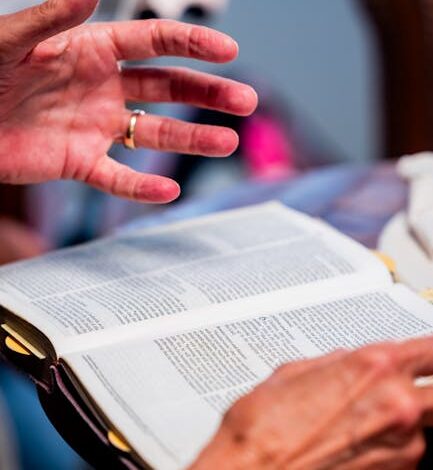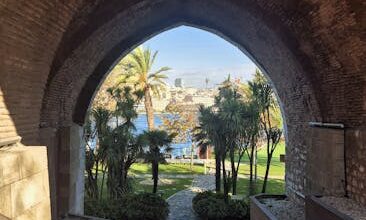The Special One’s Unwavering Faith: More Than Just Sentiment?

In the unpredictable, often bewildering world of European football, there are few figures whose opinions carry as much weight, and frankly, as much controversy, as José Mourinho. The ‘Special One’ has built a career on defying expectations, turning doubters into believers, and occasionally, turning rivals into footnotes. So, when a manager of his pedigree, a man whose insights are usually sharper than a perfectly-honed tactical diagram, throws his considerable influence behind a team like Benfica – currently winless and looking adrift in the Champions League group stage – the world sits up and takes notice. It begs the question: is this pure Portuguese patriotism, a deep-seated respect for a former club (of sorts, having started his coaching career there), or does Mourinho see something in the Eagles that the rest of us are missing?
The Special One’s Unwavering Faith: More Than Just Sentiment?
Anyone who’s followed the beautiful game for more than five minutes knows that Mourinho rarely speaks without purpose. His words are often calculated, designed to inspire, provoke, or deflect. His public backing of Benfica, despite their abysmal start in Europe, feels like it lands somewhere in the first two categories. It’s a statement that cuts through the noise of critical punditry and social media despair, offering a lifeline of belief where little seems to exist. But is it just a sentimental nod to a Portuguese giant, or is there a strategic undercurrent to his confidence?
Benfica, for all their domestic prowess, have endured a truly torrid time in the Champions League. With zero points from their opening matches, the path to the knockout stages looks less like a long shot and more like an impossible mission. Yet, Mourinho, a man who knows a thing or two about navigating treacherous European waters – and indeed, is currently facing his own challenges in Europe this season – clearly believes in their potential to defy the odds. This isn’t just a casual observation; it’s a declaration from a master tactician who has a reputation for spotting the unseen vulnerabilities and latent strengths in teams.
His faith might stem from a deep understanding of the club’s DNA. Benfica isn’t just any club; they’re two-time European champions, a historical powerhouse with a fierce winning mentality ingrained in their culture. While their current form doesn’t reflect that glorious past, Mourinho understands that football, especially at the elite level, is as much about psychology and belief as it is about individual talent and tactical execution. Perhaps he sees the raw materials, the flickering embers of a team capable of a dramatic turnaround, waiting for the right spark.
It’s also worth considering Mourinho’s own experiences. He’s been the underdog, he’s been the one counted out, and he’s famously orchestrated incredible comebacks throughout his illustrious career. This perspective might lead him to identify with Benfica’s current predicament and genuinely believe that an escape route, however narrow, still exists. His words, therefore, might be less about analysis and more about a psychological nudge, a public vote of confidence designed to rally a struggling side.
Analyzing Benfica’s European Conundrum: What Needs to Change?
Mourinho’s belief, while inspiring, doesn’t change the stark reality of Benfica’s Champions League table. To qualify for the knockouts from a winless start is an enormous ask, requiring not just a significant upturn in their own form but also favourable results from their group rivals. So, if we’re to entertain Mourinho’s optimistic outlook, what seismic shifts would need to occur within the Benfica camp?
Firstly, the tactical approach needs a radical rethink. European football demands a level of intensity, precision, and ruthlessness that Benfica has simply not demonstrated so far. Whether it’s a defensive solidity that has been conspicuously absent, or a more incisive attack that can convert chances into goals, adjustments are paramount. The team seems to lack a clear identity or a consistent threat that can trouble top-tier European opposition for 90 minutes. A more compact shape, quicker transitions, and perhaps a simplification of roles could be a starting point.
The Weight of Expectation vs. The Freedom of the Underdog
Benfica carries the immense pressure of expectation, both domestically and internationally. This can be a double-edged sword. While it fuels ambition, it can also shackle players, leading to hesitant performances when faced with the bright lights of the Champions League. A key shift would be to shed this burden and embrace the ‘underdog’ mentality. With nothing left to lose in the group, they might find a newfound freedom to express themselves, to play with the passion and flair that has often characterised their domestic dominance. Mourinho himself is a master of cultivating this ‘us against the world’ mentality, and perhaps he sees that potential in Benfica.
Beyond tactics and mentality, individual performances must drastically improve. Key players need to step up, take responsibility, and deliver match-winning contributions. The squad, while talented, has yet to consistently perform at the elite level required. Injuries, squad depth, and managing the demands of multiple competitions also play a role. If a manager of Mourinho’s calibre sees a path, it likely involves a combination of these elements: a tactical masterstroke, a psychological transformation, and a collective step-up from every player on the pitch.
The Psychology of the Comeback: Mourinho’s Own Playbook
To understand Mourinho’s backing of Benfica, we need only look at his own managerial philosophy. His career is replete with examples of turning seemingly dire situations into triumphs. From winning the Champions League with Porto against all odds, to orchestrating improbable league title chases, Mourinho has repeatedly demonstrated the power of belief, meticulous preparation, and psychological warfare.
He understands that football isn’t just played on the pitch; it’s also a battle of wills, a test of character. His public statements are often part of a broader strategy, a way to inject confidence into his own players or, in this case, perhaps to indirectly inspire a club he respects. He knows that once a team loses hope, their chances are truly extinguished. By offering a beacon of hope, he’s implicitly challenging Benfica to find that inner strength, to believe in the possibility of the impossible.
A Narrow Path Forward
Realistically, Benfica’s path to the knockouts is extraordinarily difficult. It would likely involve winning all their remaining group games – a monumental task given their current form – and relying on specific results in other fixtures. However, Mourinho’s point isn’t about the probability; it’s about the possibility. He’s saying that until the final whistle of the final group game, the dream isn’t dead. This mindset, this refusal to surrender, is quintessential Mourinho.
What can Benfica take from this? Perhaps it’s a reminder that their journey isn’t over, that the narrative can still be rewritten. They might be the punchline of early European rounds, but they still have the power to define their own destiny in the remaining matches. It’s about taking one game at a time, finding that first European win, and then building momentum – a familiar mantra from the Mourinho playbook.
Conclusion
José Mourinho’s unwavering faith in winless Benfica to qualify for the Champions League knockouts is more than just a passing comment; it’s a masterclass in football psychology and a testament to his unique understanding of the game. It reminds us that in football, as in life, the story is never truly over until the final whistle blows. While Benfica faces an Everest-sized challenge, Mourinho’s belief injects a crucial element: hope. It’s a challenge to the players, a message to the fans, and a fascinating observation for anyone who loves the drama and unpredictability of elite sport. Whether Benfica can translate that belief into a miraculous turnaround remains to be seen, but one thing is certain: with Mourinho’s backing, the narrative suddenly feels a lot more intriguing.





